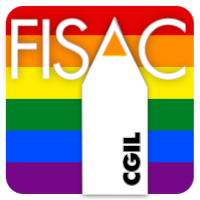GLOSSARY
- ALGORITHMIC MANAGEMENT
Algorithmic management refers to the process of overseeing, controlling, and optimizing algorithms used in various contexts or organizations. This involves monitoring algorithm performance, analyzing generated data, and making any necessary modifications or improvements to achieve optimal results.
Algorithmic management also includes selecting the most suitable algorithms for specific applications, defining configuration parameters, version control, and regular updates to account for evolving needs or new available technologies.
The goal of algorithmic management is to maximize the efficiency, accuracy, and reliability of the algorithms used while ensuring compliance with regulations and protecting data privacy.
- API BANKING
API Banking refers to API-based technologies that allow customers to access banking services through other applications. This concept is often associated with the broader concept of Open Banking, which promotes the secure sharing of financial data between financial institutions and authorized third parties in order to offer new innovative and personalized services to users. Banking APIs enable customers to integrate banking services with other applications and platforms, enhancing the user experience and accessibility to financial services.
- ARTIFICIAL INTELLIGENCE (AI)
The ability of machines to simulate human intelligence, including natural language processing, image recognition, and machine learning. In finance, AI is used to improve decision-making processes, risk management, and customer support.
- BIG DATA
The collection, processing, and analysis of large amounts of data to identify patterns and trends is commonly referred to as data mining or big data analytics.
- BIGTECH
Big Tech refer to large technology companies that have a significant presence in the financial sector and offer digital financial services. These companies use digital technologies and data to provide a wide range of financial services, including digital payments, lending services, investment management, insurance, and more.
Financial Big Tech companies are characterized by their size, global reach, and ability to leverage their digital platforms and user data to offer innovative and convenient financial services. Their financial solutions are often integrated with their other digital products and services, creating a complete ecosystem for consumers. However, the presence of Big Tech in the financial sector also raises issues related to competition, data protection, privacy, and regulation.
The main Big Tech companies include major multinational corporations such as Google, Apple, Facebook, Amazon, and Microsoft.
- BLOCKCHAIN
A form of distributed ledger in which details of transactions are held in the ledger in the form of blocks of information. A block of new information is attached into the chain of pre existing blocks via a computerized process by which transactions are validated.
- CALL CENTER AUTOMATION
Call center automation refers to the use of technology and software solutions to streamline and automate various processes within a call center environment. It involves the application of advanced technologies such as artificial intelligence (AI), chatbots, interactive voice response (IVR), and robotic process automation (RPA) to improve the efficiency, productivity, and customer experience in call center operations.
Call center automation aims to reduce the need for manual intervention and repetitive tasks by automating routine processes. This can include tasks such as call routing and queuing, customer identification and authentication, data entry and retrieval, call scripting, and post-call documentation. Automation technologies can also assist agents by providing real-time information, suggested solutions, and automated workflows to enhance their performance.
- CHATBOT
A chatbot is a computer program that uses artificial intelligence to simulate human conversation with users through chat or messaging. Chatbots are designed to answer questions, provide information, assistance, and even perform certain actions based on user requests. They can be integrated into applications, websites, messaging platforms, or social media, allowing users to interact with the chatbot as if they were communicating with a human operator. The goal of chatbots is to provide a more personalized, efficient, and convenient user experience, reducing the need for human intervention to address common inquiries.
- CRYPTOCURRENCY
A form of digital currency that uses cryptography to secure transactions and control the creation of new units. Examples include Bitcoin, Ethereum, and Ripple.
- CYBERSECURITY
Cybersecurity refers to the practice of protecting computer systems, networks, and data from unauthorized access, theft, damage, or disruption. It involves implementing measures and employing technologies to safeguard against various threats, such as cyberattacks, data breaches, malware, and other forms of unauthorized intrusion. Cybersecurity aims to ensure the confidentiality, integrity, and availability of information and resources in the digital realm. It involves implementing preventive measures, detecting and responding to security incidents, and continuously monitoring and updating security measures to mitigate risks and maintain a secure environment.
- DECENTRALIZED FINANCE (DEFI)
A decentralized financial system that uses blockchain technologies to enable direct financial transactions between users, without the need for intermediaries
- ELECTRONIC BANKING (E-BANKING)
The provision of banking products and services, including electronic payments, through electronic channels. The electronic banking (E-Banking) concept includes mobile banking, internet banking, ATMs and POS banking transactions, among others
- FINTECH
The use of technology and innovative business models in the provision of financial services. Why is fintech important? As the mobile internet has expanded, fintech has exploded, introducing a wide variety of technological interventions into personal and commercial finance. Non-bank institutions providing disruptive financial services can boost financial inclusion initiatives. The term is a contraction of “financial technology”. It refers mainly to technological innovations in the financial sector, including innovations in financial literacy and education, retail banking, investment and even crypto-currencies.
- INTERNET BANKING
Allowing customers to access banking services via the internet using a computer or mobile device.
- METAVERSE
Metaverse refers to a virtual reality space or digital universe where users can interact with a computer-generated environment and other users in real-time. It is a collective virtual shared space that is accessed through the internet or other networks.
From a financial perspective, the metaverse represents a potential economic ecosystem where individuals and businesses can engage in various activities such as commerce, social interactions, entertainment, education, and more. It offers opportunities for monetization through virtual goods, digital currencies, advertising, and immersive experiences.
- MOBILE BANKING
Allowing customers to access banking services through mobile devices, such as smartphones or tablets.
- OPEN BANKING
An approach that allows third parties to access customers' financial data, with their consent, in order to provide innovative and personalized financial services.
- PLATFORM ECONOMY
The platform economy refers to an economic system in which goods, services, and transactions are facilitated through digital platforms. These platforms act as intermediaries, connecting buyers and sellers, service providers and consumers, or other participants in various sectors.
In the financial sector's platform economy, digital platforms act as intermediaries, enabling financial transactions and interactions between different parties. These platforms often leverage technology, data analytics, and algorithms to match users with suitable financial products or services.
Participants in the financial platform economy can include traditional financial institutions, fintech companies, peer-to-peer lending platforms, crowdfunding platforms, and digital payment providers. These platforms offer convenience, accessibility, and a wide range of financial options to users.
- REGTECH
Short for "regulatory technology," referring to the use of technology to help financial institutions comply with regulations and rules more efficiently and effectively.
- TELEWORK
Telework is an agreement whereby an employee's work is carried out outside of a predetermined workplace (which typically corresponds to the employer's premises) using information and communication technologies (ICT). The characteristic elements of telework are the use of computers and telecommunications, which allow for a change in the usual place of work, the frequency with which the employee provides services outside the employer's premises, and the number of locations where employees work remotely (mobility).

